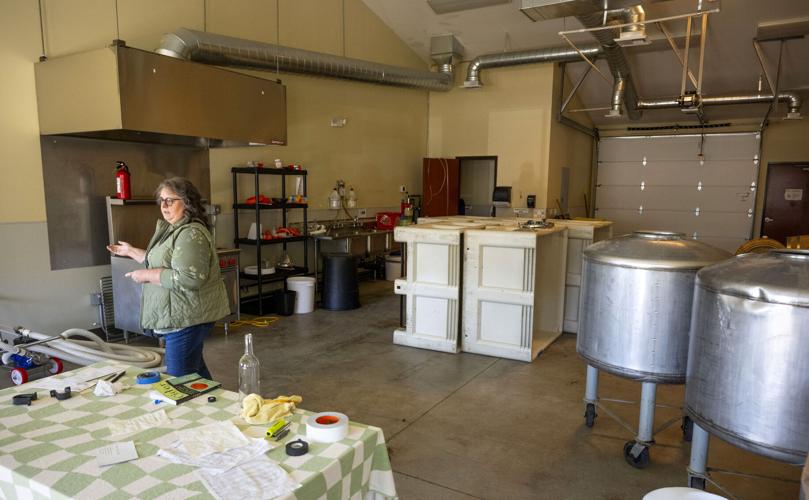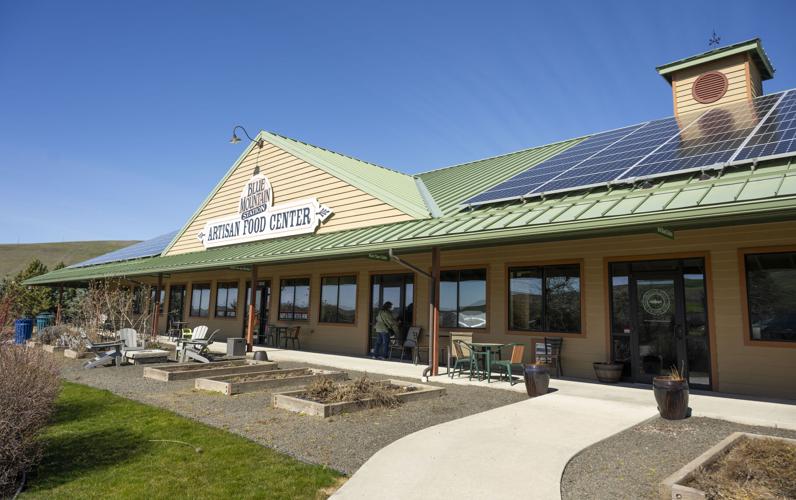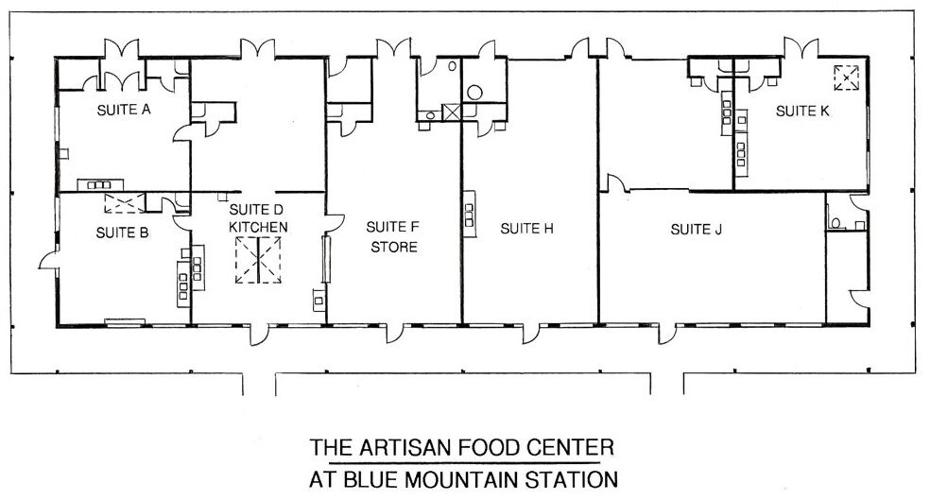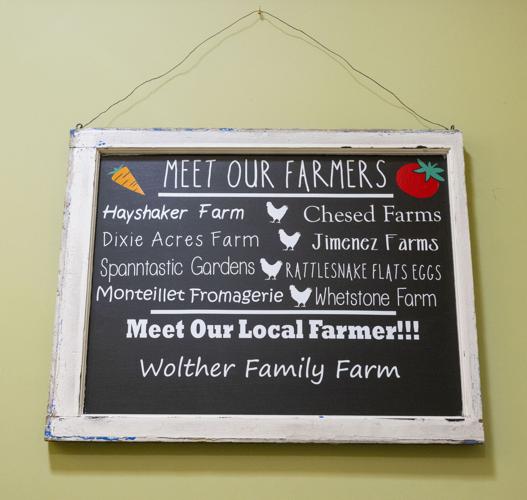DAYTON — Tucked between the hills of the Touchet Valley is Blue Mountain Station, where regional business owners are busy cooking, brewing and creating artisan products.
Beyond bringing the small farm town locally grown produce, Blue Mountain Station, a Port of Columbia project, has helped to drive up the local economy by providing a steppingstone for startup and small businesses.

Blue Mountain Station in Dayton on Thursday, March 14.
Jennie Dickinson has been the executive director of the Port of Columbia since 2007. She worked to orchestrate a marketing study in 2007 that helped to identify a niche market for business development and attraction in the Touchet Valley. The study's result was the creation of the Blue Mountain Station, a 28-acre plot of land formerly known as the Bell Farm.
Since 2008, buildings that local food processors can use have cropped up across the property like mushrooms after a rainstorm.
The Port of Columbia purchased the land and infrastructure of the plot using Community Economic Revitalization Board, or CERB, funding. Recently the Port resolved to apply for more CERB funding to put a craft malt processing facility on the property. Mainstem Malt, a private sector partner, will invest $5 million or more to pay for the facility along with a $5 million grant/loan package from CERB.

Jennie Dickinson, executive director of the Port of Columbia, talks about Blue Mountain Station.
At the heart of the property is the Artisan Food Center, which has seven bays for businesses, including a co-op market and a commercial kitchen.
Dickinson said the need for a space to support small regional businesses came in 2011, at the height of the great recession.
"What I kept hearing was that these small artisan businesses were flailing and couldn't get access to facilities they needed to operate," she said. "We received about $750,000 from the state. By December 2013, the Blue Mountain Station had been built and in January 2014 we had the kitchen certified."
The commercial kitchen at Blue Mountain Station is available for hourly rental to anyone in the region. A $50 cleaning deposit is required and will be returned if the kitchen is left in a clean and usable condition, and it costs $15 for every hour the kitchen is in use.
The kitchen potentially can be used for startup food processing businesses that need part-time facilities, entrepreneurs who are doing product research and development, or caterers or food truck operators that need a certified space for food preparation.

Local produce for sale at Blue Mountain Station in Dayton.
The space also has been rented by 4-H groups, colleges, community groups, businesses or residents who need a place to conduct cooking classes or to prepare, process and preserve food.
Spanning 1,152 square-feet, the kitchen has everything that is needed to cook a variety of items. One of the benefits of working with the co-op is having the opportunity to sell products in the market area, as well as be able to access the serving counter and window.
What Dickenson said was the "heart and soul" of the business park started as a farmers' market where vendors met once a week on Saturdays. Eventually, the idea of a permanent co-op market sprouted and took root. The co-op market is a private business that rents space at Blue Mountain Station from the Port of Columbia.
"Our community is so small that it is hard for a farmer to sit at a market for six hours and only sell $100 worth of product," she said. "We decided to sell as a consignment so the farmer or business owner can actually make some money."
A commission of about 20% is taken from each item sold at the market, creating a balance of money making for both the Port and the business owner.
Dickinson said the easy access for businesses at Blue Mountain Station fosters greater opportunities for entrepreneurs; the reason is affordable lease options, split utilities and included kitchen equipment.
"If we all made an effort to buy local, our local economy would benefit," she said. "We have a lot of success stories that have come out of the Blue Mountain Station."
Susan Larson, manager of the Blue Mountain Station Co-op Market, said not only does the market offer a consignment space for local vendors, but they also make their own products in the kitchen such as fresh baked bread, soups and take-and-bake meals.
"Most people don't even know about this facility, but it really helps small and local businesses get off the ground," she said.
Rey's Roast, North Home Bees, Red Band Cellars and Butcher Butcher are just a few of the area businesses that sell at the co-op market. Also, the market sells kombucha made in Moscow, Idaho, grain milled in Colfax, Washington, and seeds from the Snake River Seed Cooperative, which covers the Intermountain West region.
"We can hardly keep some of the products on the shelves," Larson said. "The cool thing about the co-op is that it brings some really neat businesses together that otherwise people might not know exist."
















(0) comments
Welcome to the discussion.
Posting comments is now limited to subscribers only. Become one today or log in using the link below. For additional information on commenting click here.
Log in
Keep it Clean. Please avoid obscene, vulgar, lewd, racist or sexually-oriented language.
PLEASE TURN OFF YOUR CAPS LOCK.
Don't Threaten. Threats of harming another person will not be tolerated.
Be Truthful. Don't knowingly lie about anyone or anything.
Be Nice. No racism, sexism or any sort of -ism that is degrading to another person.
Be Proactive. Use the 'Report' link on each comment to let us know of abusive posts.
Share with Us. We'd love to hear eyewitness accounts, the history behind an article.